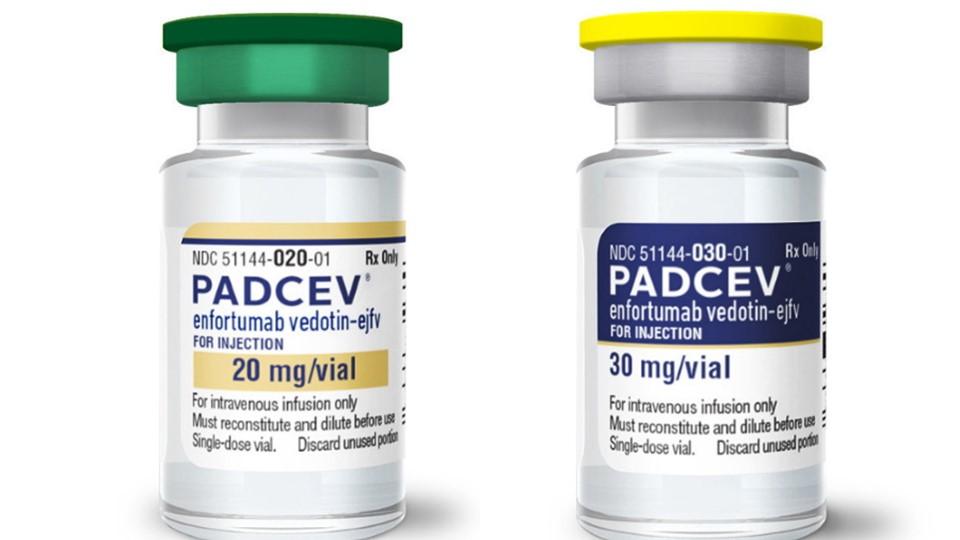Astellas raises Padcev forecasts on bladder cancer data

Stellar results in a bladder cancer study have prompted Astellas to raise its peak sales prediction for Pfizer-partnered antibody-drug conjugate Padcev, although its new menopause therapy Veozah isn’t ramping up as hoped.
Astellas said in a results update this morning that Padcev (enfortumab vedotin) will now bring in JPY 400 to 500 billion ($2.7 to $3.4 billion) on the back of the EV-302 study showing that the combination of the drug with MSD’s Keytruda (pembrolizumab) significantly improved survival compared to chemotherapy in previously untreated patients with locally advanced or metastatic urothelial carcinoma (UC), the most common form of bladder cancer.
That is a JPY 100 billion increase on its previous predictions and comes on the back of a 68% increase in sales of the drug to JPY 55.6 billion in the first nine months of the current fiscal year ended 31st December 2023. It expects full-year sales of the drug to reach more than JPY 85 billion.
The results of EV-302 were reported at the ESMO congress last year, and the FDA started a priority review of the new indication in December, delivering a verdict in just two weeks.
The Padcev/Keytruda regimen previously had accelerated approval from the FDA as a first-line option for advanced UC in patients who are ineligible for cisplatin-containing chemo, which Astellas said was in large part responsible for the sales gain last year. Adding the results of EV-302 to the label makes it an option for cisplatin-eligible patients as well – a much larger population.
The peak sales figure is for the drug overall, with Pfizer booking sales in the Americas after its takeover of Seagen, which partnered with Astellas on the drug’s development, and Astellas recording revenues in other markets. Both companies share 50% of the profits on sales made in their partner’s jurisdictions.
Veozah sluggish
The picture was less encouraging for Veozah (fezolinetant), which became the first drug in the neurokinin 3 (NK3) receptor antagonist class to be approved for marketing in the US last year as a treatment for moderate to severe vasomotor symptoms (commonly known as hot flashes) in menopausal women.
Astellas has revised its sales forecasts for Veozah in the current fiscal year downwards to JPY 7.1 billion ($50 million), saying that demand “trails internal expectations”, mainly because doctors perceive payer coverage is “insufficient to actively prescribe” the drug.
The poor uptake has occurred despite a big direct-to-consumer (DTC) campaign in the US that included a television spot during the Super Bowl.
The company said its peak mid- and long-term sales projections for Veozah – now also available as Veoza in seven European countries, including the UK and Germany – remain unchanged for now, but are under review. It has previously given peak sales guidance of JPY 300 to 500 billion yen for the product.
The two drugs are seen as being important for Astellas, as it faces the loss of patent protection for blockbuster cancer therapy Xtandi (enzalutamide) – also partnered with Pfizer – which is due to take place in 2026 in Europe and Japan, and 2027 in the US.
A third pillar of its plan to offset the anticipated loss of revenues when generic competition kicks in – Izervay (avacincaptad pegol) for sight-robbing disorder geographic atrophy – put in a more encouraging performance with sales on course to reach JPY 11 billion for the full-year, in line with predictions. Astellas acquired Izervay as part of its $5.9 billion takeover of Iveric Bio last year.













